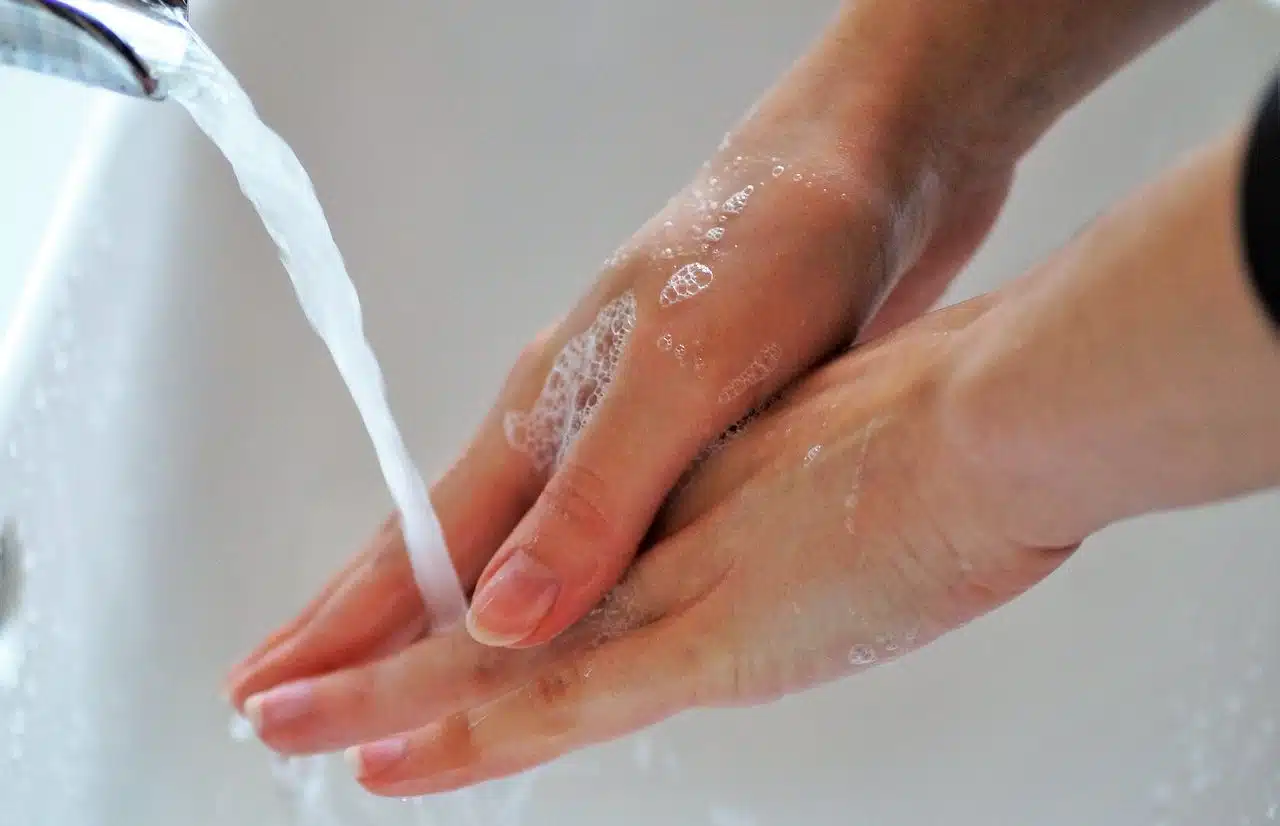
Hand washing helps maintain health.
Hand washing is the sanitization of said part of the body. It is a very important daily activity that helps avoid illnesses , since hands come into contact with various types of surfaces during the day and can carry germs, bacteria and other pathogens.
It should be noted that the action and effect of washing are called washing . The verb wash is linked to cleaning something, removing dirt or purifying it. The characteristics of washing depend on the object to be washed: the same materials and techniques are not used to wash a car as to wash an apple. The hand , on the other hand, is the area of the human body that is attached to the end of the forearm and extends from the wrist to the tips of the fingers .
Importance of hand washing
When an epidemic of some other viral infection occurs, such as influenza A or COVID 19, governments usually carry out important campaigns through the media to raise awareness among the population about prevention methods. and the procedures to be carried out in case of contagion. One of the main points in these moments of emergency is hand washing: this action, apparently not very relevant and requiring a minimum of energy per day, can significantly reduce the risk of transmitting a virus.
Only about fifteen seconds are enough for hand washing to be effective and this helps to considerably reduce the risk of acquiring and transmitting certain diseases, such as skin and respiratory infections , parasitosis, conjunctivitis and diarrhea (especially in people children under five years old).
Even when we think our hands are clean, they can harbor a large number of viruses and bacteria, and the list includes: Staphyloccocus, Streptococcus, Clostridium difficile, Klebsiella, Enteroccocus, Pseudomonas, Shigella, Influenza, Bacteroid, Escherichia coli and Proteus mirabilis .

For hand washing to be effective, certain criteria must be respected.
Different processes
The most common way to wash is to apply soap and water : first wet your hands with water, then soap them and rub them for several seconds, cleaning the palm, back, fingers, interdigital spaces and wrists. . Finally you have to rinse your hands and dry them.
Hands can also be washed with alcohol or other antiseptic products. Experts recommend washing your hands several times a day: before eating, before and after going to the bathroom , when you get home from the street, etc.
Symbolic use of handwashing concept
The idea of handwashing can also be used in a symbolic sense as a way of not taking responsibility or blame . This figure is generally associated with Pontius Pilate , who washed his hands after condemning Jesus to death. For example: "The mayor's washing of his hands outraged the people: first he gave the lands to the businessman and then he resigned."
Precisely, Pontius Pilate 's washing of hands is a symbol of letting go of guilt, of washing one's conscience in a superficial way, without reflection or compassion, but rather seeking the shortest and most convenient way to become "clean" , and its importance in Western civilization it is considerable. But his attitude was completed with the words he spoke before Jesus Christ was crucified: "I am innocent of the blood of this righteous man."
Water as a purifying element is a common factor in many religions and cultures. For Christianity, for example, it seeks to cleanse children of original sin from baptism, just a few days after their birth. Likewise, both Christians and Jews practice ablutions , the washing with water of the entire body or part of it, such as the hands, with the purpose of purifying the soul.
